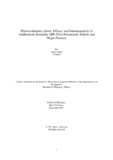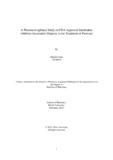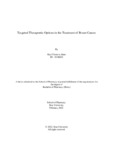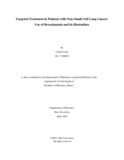Browsing by Subject "Biologics"
Now showing items 1-8 of 8
-
Biologics and Biosimilars as Treatment Options for Psoriasis
(Brac University, 2022-02)Psoriasis is a common chronic skin disease stemming from a systemic inflammatory disorder. It affects more than 7.5 million people in the United States and an estimated 125 million people worldwide. It is an immune-mediated ... -
Biologics in the treatment of Severe Asthma
(Brac University, 2022-04)At present, asthma is one of the major chronic respiratory diseases that distorts the daily life of nearly 300 million people around the globe and almost 5–10% of these people experience severe or uncontrolled asthma. ... -
Biosimilar insulins: a potential option in the treatment of Diabetes
(Brac University, 2021-04)Diabetes is one of the most common noncommunicable diseases in the world and insulin, a biologic, has been a successful treatment option for this disease. However, the cost of insulin treatment is expensive and thus a ... -
Pharmacokinetics, safety, efficacy and immunogenicity of Adalimumab biosimilar ABP-501in rheumatoid arthritis and plaque psoriasis
(Brac University, 2021-12)ABP-501 is a biosimilar of Adalimumab (Humira) and a tumor necrosis factor-alpha inhibitor that is responsible for inflammatory effects on the body. ABP-501 is equally effective against moderate to severe rheumatoid arthritis ... -
A pharmacovigilance study on FDA approved interleukin inhibitor-associated alopecia in the treatment of psoriasis
(Brac University, 2023-02)FDA has approved about 12 biologics for treating psoriasis. Among them, TNF-α inhibitors have a history of causing alopecia while used for treatment. In our study, we tried to find out the relation between alopecia and the ... -
Recent advancement of biologics in Asthma
(Brac University, 2022-03)It is quite visible that in the comparison to the patients having well-controlled asthma, patients having severe uncontrolled asthma do have disproportionately high rate of morbidity and also health-care usage. Whereas the ... -
Targeted therapeutic options in the treatment of Breast Cancer
(Brac University, 2022-02)The recent application of targeted therapies such as biologics, biosimilars, and other targeted biological agents in the treatment of diverse subtypes of breast cancer has been facilitated by the decoding of the human ... -
Targeted treatment in patients with non-small cell lung cancer: Use of Bevacizumab and its Biosimilars
(Brac University, 2021-04)Angiogenesis is one of the pivotal factors contributing to the development and metastasis of non small cell lung cancer which is one of the most commonly diagnosed types of lung cancer. Bevacizumab, a monoclonal antibody ...








